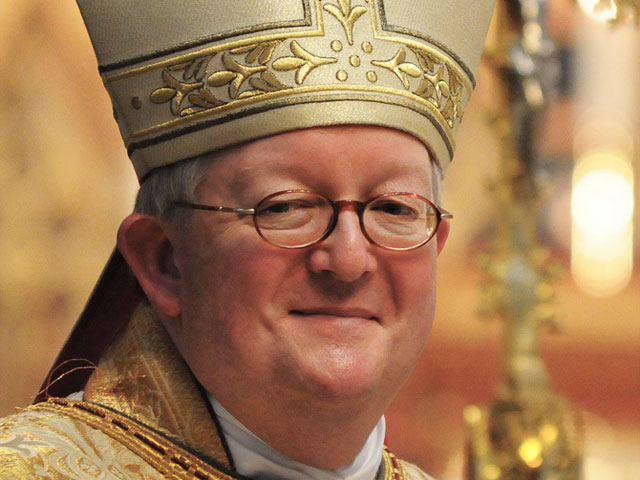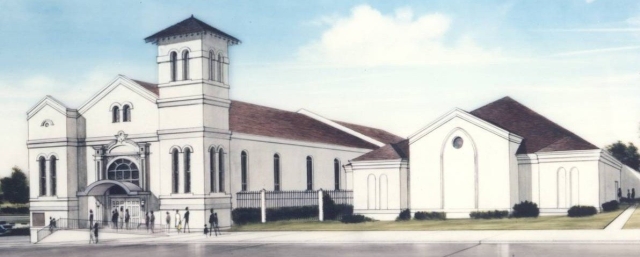January has been a wonderful month for lovers of Anglican ecclesiastical drama. The resignation of Rowan Williams as Archbishop of Canterbury at year’s end should have led to a few month’s peace and quiet for the Church of England and the wider Anglican world. I had even thought of taking a vacation this month as little of substance appeared on the radar as of late December.
I could count on the penchant of Episcopalians in the United States to sue each other over church property disputes — 88 cases and counting. And there would certainly be some sort of gay story — thank you Washington National Cathedral for announcing you will host gay weddings! But I could write those stories in my sleep — and to tell the truth I would have had a hard time selling them. I could hear the editors say: “You want me to publish another gay Episcopal story? Tell me how is that news?”
But thank goodness for the Church of England. When life get’s me down. When I begin to think my mother in law is right and there is still time to go to law school and have a “respectable” career, the Church of England comes to my rescue. What a month it has been. Fights with the government over gay marriage, fights over gay bishops, and fights over women bishops. The CoE is at its most interesting when it is at war. Liberal and conservative wings in full war cry, possessed of the certainties of the Israelites who went out boldly to hew Agag in pieces and to smite the Amalekites hip and thigh.
Last week the fight over women bishops flared anew, illuminating the dreary skies of Westminster as the lay members of General Synod met at Church House in London to hear a motion calling for the impeachment of the chairman of the House of Laity.
Channel 4 News — which is the fourth British television network (BBC1, BBC2, ITV and Channel 4) — ran a story entitled “Women bishops: laity votes in no confidence motion,” previewing the meeting. It began:
The debate over women bishops in the Church of England is reignited today as one of the houses of the church’s governing body meets to consider calling for the resignation of its chair.
The House of Laity, part of the General Synod, is meeting in London for an extraordinary meeting to vote on a motion of no confidence in chair Dr Philip Giddings, who spoke against women bishops – directly after the Archbishop elect, Rev Justin Welby spoke in favour.
Canon Stephen Barney, who will propose the motion after setting up a petition, says Dr Giddings’ action “undermined” the speech of the archbishop-elect and were not representative of the house.
The story goes on to give the background to the meeting, noting it was the laity who blocked passage of a bill permitting the consecration of women clergy to the episcopate. The story then quotes the mover of the resolution, giving him space to summarize his views:
Speaking to Channel 4 News ahead of the meeting, Mr Barney, who has insisted the motion is not a personal attack, said the purpose of the meeting was not to debate women bishops in this particular incident, but whether Dr Giddings was representing the house which he chaired.
He said: “I hope that we will have a proper debate. It’s a question of whether this was appropriate given that he was not representing the view of the vast majority of the House of Bishops, the House of Clergy and indeed all but 74 of the House of Laity.”
Three more paragraphs of quotes from Mr. Barney are provided, followed by the line:
Dr. Giddings has not yet commented on the issue and said that “the time for debate is when we have the debate.”
Oh, and at the bottom of the page is this announcement:
The author of this piece, Katharine Barney, is the daughter of Canon Stephen Barney.
Is that clear. Katharine Barney the author of the news article is the daughter of the subject of the news article, Stephen Barney.
Is it possible for a daughter to write a balanced news article about her father? Yes, it is possible. A good journalist can detach themselves and write a story that is fair to both sides. Love or hate Dad, a good reporter can still do their job. Yet the appearance of impropriety remains.
In this case, the balance expected of a reporter — a normal one, e.g., not the child of the subject of the piece — is absent. The British blog Cranmer — one of the best written and more intelligent religion blogs out there — had this to say:
This debate will attract an awful lot of media attention: it touches on theology, equality, morality, the governance of the Church of England, and the right separation of powers. One might expect Channel 4 News to have done rather better than get the daughter of the motion’s proposer to write a superficial and thoroughly biased article on the matter.
Standing outside the issues, the Channel 4 story failed as journalism. It was unbalanced. While Dr. Giddings declined to speak to the issues, there were dozens of others in the Church of England — bishops, lay leaders, commentators — who could offer a contrary voice. The context for this story was insufficient. How did the Church of England get to this place? Has this happened before? How much does it cost and who is paying for it? What happens if Dr. Giddings is impeached, or if he survives censure?
Where these problems addressed in the article, then it could be argued that having the daughter of the subject of the story write the story was a bold move by Channel 4’s editors to show the professionalism of its reporter. This did not happen.
Opprobrium should not be heaped on the author of the story, however. We do not know what the original story she submitted looked like, and by her lights this may have been a balanced complete account. The fault lies with the editors at Channel 4. What were they thinking?











